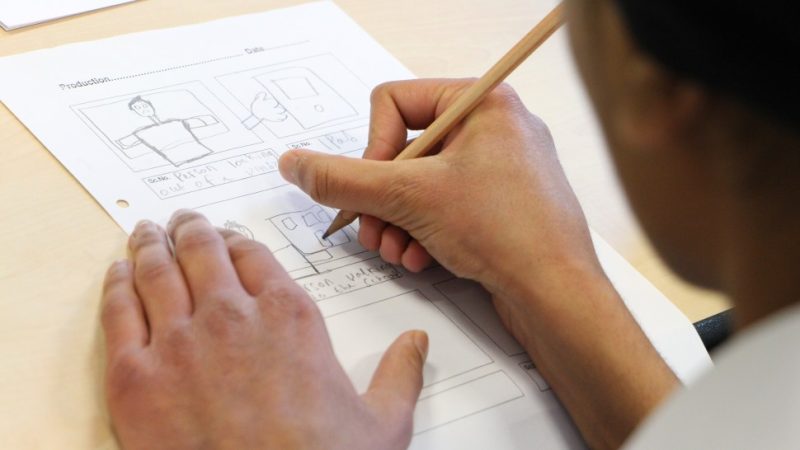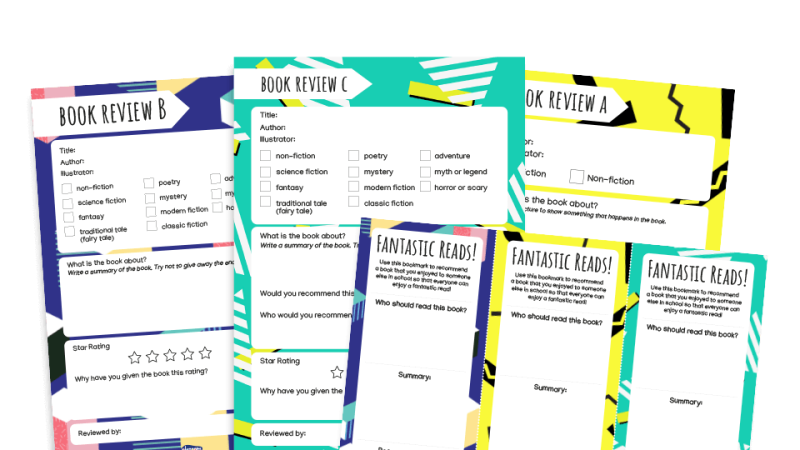Forcing children to finish books they don’t like won’t make them better readers

Forcing children to finish books that don’t interest them won’t make them better readers, warns Hayley Scott – and it could hinder the rest of their learning, too…
- by Hayley Scott

Let children read what they want!’ ‘Let them read for pleasure!’ Writers say this all the time, and I agree with them.
There’s nothing quite like reading what you enjoy. It opens you up. It takes you places. It introduces you to people you’d never meet otherwise, ways of thinking you’d never find by yourself, and fills you up with beautiful images, making you excited, hopeful, less lonely and at its best, full of wonder.
Who wouldn’t want that for every child?
As a teacher and writer, I can see the disconnect between what we all think children should be having access to bookwise, and what is possible in the current education climate, budgetwise.
Most teachers, given the choice, would have classrooms bulging with books, new and old, ready to be pulled from the shelves and delved into by enthusiastic pupils… but as we know, for lots of schools the money just isn’t there, even when SLT really want it to be.
And while plenty of us dip into our own money to buy books for our classrooms that might suit individual pupils – those who don’t have access to books at home, or those who just can’t get into the books in the school library or on the reading schemes – it’s expensive and isn’t always possible.
Many would argue it shouldn’t be necessary, of course. But we have to work with what we’ve got.
Good choices
What do you read? What don’t you read? As an adult. As a teacher.
Do you read current children’s fiction, not just the bestsellers they sell in the local supermarket?
What did you love to read as a child? Did you ever hear adults around you suggest some books are ‘better’ than others? Do you still have a voice in your head that tells you some reading choices are more valuable than others? Because the research says not.
The research says that reading for pleasure makes the difference, not what the children read.
Reading for pleasure is what creates curious, engaged, happy, confident learners. And, on a basic, less poetic level, reading for reading’s sake, without enjoyment, simply doesn’t ‘get the results’.
In the daily life of a school, it’s so easy to forget that some children dread reading, will do anything to get out of it, will pretend to read just to keep the adults from their back.
There are many reasons why, and it’s not our jobs as teachers, or writers, to judge them or their families, or their teachers, even.
But to expect a child who’s never really read books at all, to come to school and make their way through the banded reading scheme just because it is ‘good’ for them, seems utterly counterproductive.
What if, as we all know when we think about our own lives, what children should be reading is a simple as what they are passionate about, what makes them laugh, what makes them feel hopeful or excited.
What if they should be reading books that, when they talk to you about them, make their eyes light up the way they do when they talk about Pokemon cards, or YouTubers, or LOL Surprise Dolls?
Things they love
Nearly every teacher I’ve met in the thirteen years since I first stepped into a classroom as an adult cares deeply about the success and wellbeing of every child in their class.
If you were a bookworm yourself, and so many teachers were, books were comfort, solace, excitement, adventure, friends even.
But imagine something you hate doing now, something you struggle with – bills, paperwork, laundry… and then think about how it would feel if every day of your life, your success as a person were judged by how well and how often you did that thing.
Reading is like this for many children, and we all need to remember that. Because, surely, how you feel about books, life, yourself, shouldn’t come down to luck.
Self-esteem is affected by so many different things. If we can use the things children love already to bring a love of books and narrative and creating worlds of their own, why wouldn’t we?
If my mum hadn’t read to me every night, and taught me to read before I started school, my feelings about myself, and school, and what words and stories could do for me would have been so different.
She gave me a magic gift; one that every child should be given, regardless of background. And it all begins with a book; so here are some things you could try in your school:
- ‘Peer readers’ – some schools encouraged paired reading, where a child who works beyond expected at reading reads to a child who is below. This doesn’t have to be a formal thing, done at a set time.
- Quiz children on what they love, and try and find books to match. There isn’t time in a school day to do that, often – but greater links with local libraries could be a way forward. Is it possible for you to do regular trips with your class? With your school?
- Have you got magazines, comics, graphic novels in your classroom? Can you get children who are into these things to talk to the class or groups about why they love them? Can you get books linked to the TV they watch, or the movies they love? Instead of thinking, ‘Oh no not another Avengers costume’ on World Book Day, can you engage with children’s enthusiasms in ways that give opportunities for further reading?
Reading for pleasure – what works?
According to the Centre for Literacy in Primary Education (CLPE), the following strategies are proven to have a positive impact on children’s attitudes to reading:
- Developing an ethos and an environment that excites, enthuses, inspires
- High-quality texts with depth and interest in story, character, illustration, vocabulary, structure and subject matter
- A read aloud programme
- Teachers who are knowledgeable about children’s literature
- Creating a community of readers with opportunities to share responses and opinions
- Planning for talking about books and stories, providing structures within which to do this
- Understanding the importance of illustration in reading both in terms of creating a text and responding to a text
- Using drama and role play to help children to understand and access texts
- Working with authors and author/ illustrators to understand the process of creating books
- Using literature beyond the literacy lesson – cross-curricular planning with quality literature as the starting point.
Hayley Scott is a primary school teacher and writer. Her Teacup House series for emerging readers is available from Usborne. One Christmas Night, a novel for adults written as Hayley Webster, is out 14 November with Trapeze books.











